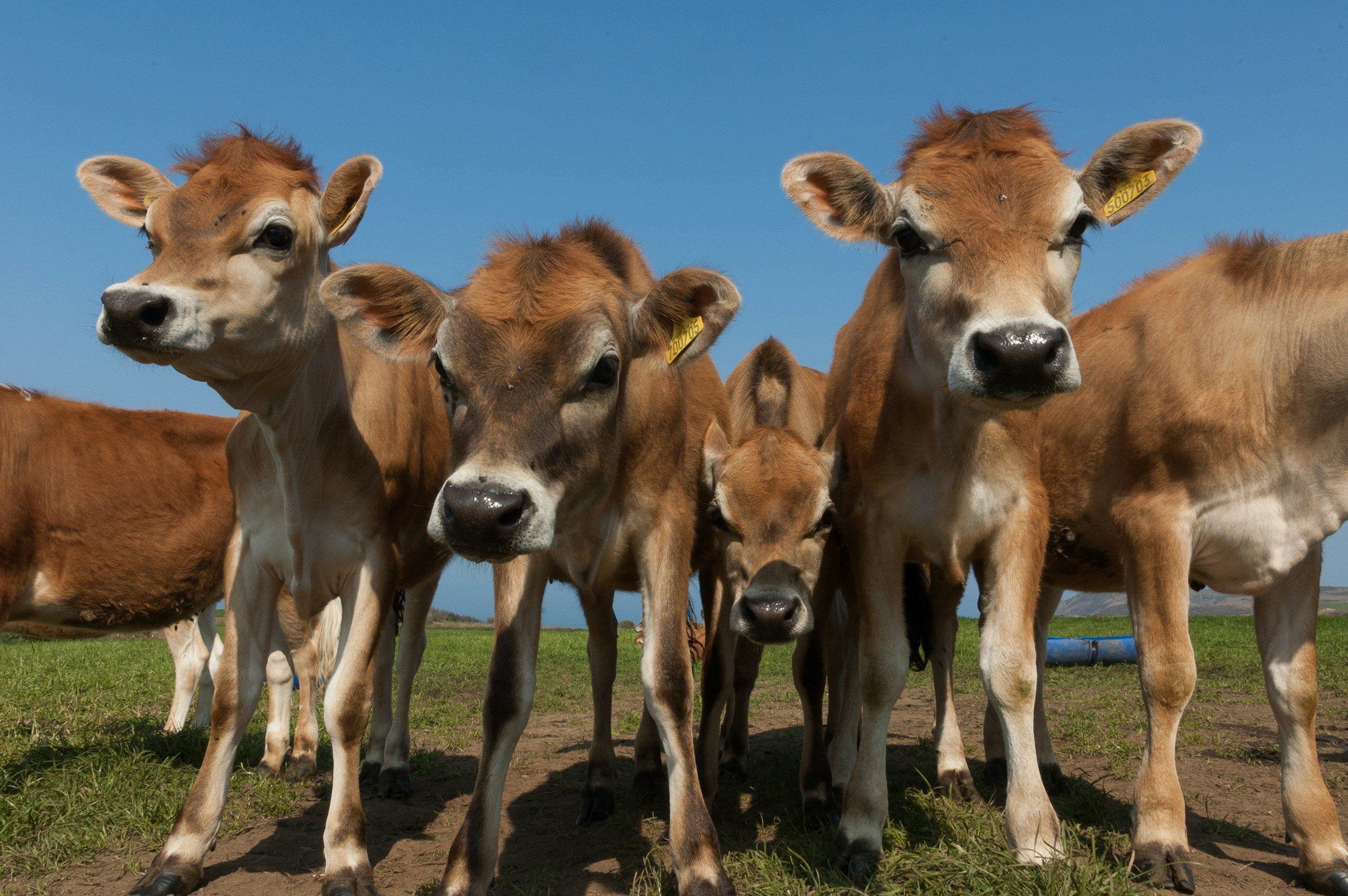
Case Study
Jersey Dairy
Farm facts
Location: Trinity, Jersey
About the business:
Farmer-owned co operative since 1955, comprising 13 farms with a total of 2,150 cows, producing 14m litres of milk annually. All milk from the island is processed at Jersey Dairy into a wide range of products, including ice cream, butter, long-life milk and ‘Thickshake’.
65% of produce is sold locally with the rest exported, mainly to the British mainland, but also as far as Hong Kong and South Korea. Most produce is marketed under the Jersey Dairy brand, but is supplied also to a number of premium brands, including Hotel Chocolat for soft-mix ice cream. There’s a close focus on microbiological quality, and quality bonuses make up around 10% of the milk price received by farmers.
About the farms:
Jersey has had a closed dairy herd since 1763, keeping the pedigree pure. Access to selected genetics has been allowed since 2008, leading to productivity increases. The co-operative was set up by the Jersey government that has supported farms through recent restructuring.
Land is largely rented on short-term tenancies from a multitude of owners, with an average field size less than 1ha, and most co-op members are family farms. It’s a high-cost system, and very reliant on feed protein imports. All farms take part in very competitive benchmarking.
VUCA challenges and opportunities
The co-operative has come a long way since the 1950s, when there were 1,000 farms and 10,000 cows. More recent restructuring has ensured phenomenal gains for the efficient producers that now make up its membership, with a much-reduced herd size – that’s productivity with a capital ‘P’.
The current market volatility is a huge concern, however. Our operating costs have gone up by 10% and they’re predicted to rise by a further 25% over the next 12 months. Our reliance on imported feed protein makes us vulnerable to increases in commodity prices.
But we have a very strong brand. The cow is central to that brand, and it starts on the farm. The decision for all farms to be LEAF-accredited was a clever move, because it’s given us a very strong biodiversity strategy for the whole island that we can build on.
We’ve now set out to do the same with our carbon emissions, and the plan is for all of the island’s farms to use Sandy so we can accurately establish individual farm sustainability metrics and measure our path to net zero and make the most of the opportunities ahead.
Adaptive capacity
1. Business bravery – The productivity improvements of farms in the co-operative have probably taken us from a score of two, to where we are now. While we may not have the performance of farms on the mainland, the long-term viability of the 13 farms is everything to us, and we’re seeing this strengthen year-on-year.
2. Smart trust – We must always ensure we score a five here. We’re very lucky to have some excellent advisers who come to Jersey and help the businesses here progress. Knowing how to interpret that within our farming system is key.
3. Learning – Again, we may not have scored well here in the past as an island of family businesses, but that has turned around in recent years. The next generation of farmers within the membership are outward-looking, have a thirst for knowledge and for driving forward their skills.
4. Adaptive prowess – We’re aware as a community that we’re exposed to sharp knocks and market swings, we’re reliant on imports with a generally low manufacturing base. That’s given us a need to build resilience, and it’s why benchmarking is a critical aspect of what we do. We also benefit from a very supportive government, so our capacity to adapt is good.
5. Effective networking – Collaboration is absolutely fundamental to what we do, and we have very strong industry connections on the mainland, too. We may be small, but we pack a punch and we’re recognised throughout the industry for that, winning at the 2022 Cream Awards for the best dairy marketing campaign.
Lessons learned and outlook
The systems we’ve taken on in the dairy to ensure the quality of our milk paired with the way we work closely with our farmers have ensured we always get very high results, which is crucial for a premium brand.
Equally, for carbon accounting, we had to ensure we have a bespoke service, that caters for the unique aspects of our farming system. It has to be practical, to adapt as science builds our understanding of carbon emissions. That’s why we settled on Sandy after a lot of research. We’re working closely with Trinity AgTech to bring all the farms on board, and are confident Sandy’s scenario planner will be particularly invaluable in deciding how we progress to net zero.
Knowing your individual farm’s performance when it comes to sustainability metrics really motivates you to improve and this is where Sandy can really add value and provide valuable information to benchmark and improve business resilience.
We also see it as an additional branding opportunity. Jersey Dairy has built its reputation on the unique farming system we follow. The metrics we get through Sandy will help evidence this and allow us to demonstrate a year-on-year improvement.



